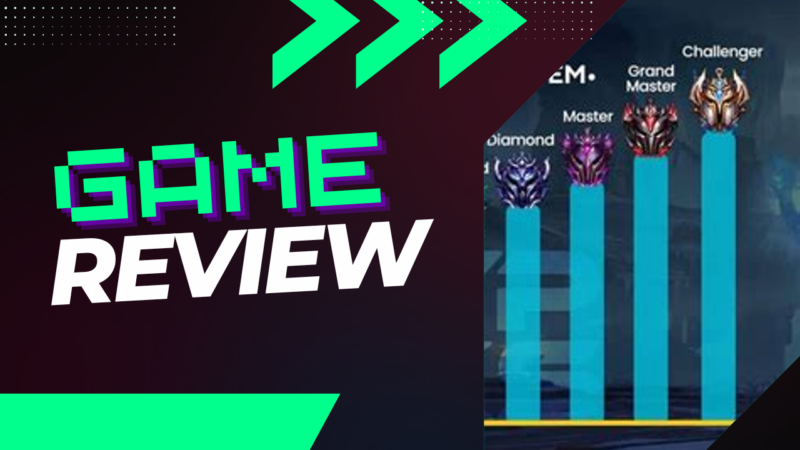Can a simple game of League of Legends really crank up your testosterone levels? If you’ve ever caught yourself in a heated match, calling upon every ounce of competitive spirit, you might think so. However, a recent study offers a surprising twist: despite the virtual battles fought on screen, players may find that their hormone levels remain as steady as a well-placed tower in Summoner’s Rift. It turns out that the adrenaline rush associated with gaming doesn’t translate into the same hormonal spikes seen in physical sports. So, what does this mean for gamers and their health? Let’s dive into the world of competitive gaming and testosterone to uncover the truth.
Does playing League of Legends increase testosterone levels?
Playing League of Legends does not result in an increase in testosterone levels. In fact, a study exploring the hormonal responses of men engaged in gaming activities found no significant fluctuations in salivary testosterone, cortisol, DHEA, or androstenedione levels. This data suggests that even in a competitive gaming environment, the expected hormonal spikes associated with physical competition and stress are absent.
To delve deeper into this finding, it’s essential to understand the context of the study and the typical biological response to competitive scenarios. Under normal circumstances, activities that involve physical competition often induce a rise in testosterone due to the stimulating nature of competition and its association with aggression and dominance among participants. This response can trigger a cascade of physiological changes, often referred to as the “winner effect,” where victorious individuals exhibit an increase in testosterone levels which reinforces their competitive behavior.
However, the study’s results indicate that engaging in video games like League of Legends does not elicit the same hormonal responses as physical sports. The absence of notable changes in essential hormones implies that the psychological stress of gaming may be different from that experienced during physical competition. While the social interaction and strategic elements of League of Legends are undoubtedly challenging, they do not seem to engage the body’s endocrine system in a manner comparable to traditional sports.
Additionally, the findings raise fascinating questions about how our bodies react to digital versus physical competition. The result also opens up avenues for deeper research on video gaming’s broader physiological impacts, especially since gaming has become a crucial aspect of contemporary recreation. This distinction is particularly relevant in our increasingly digital world where competition often occurs in virtual environments, urging further exploration into how these experiences affect our health and hormones differently compared to conventional competitive activities.
What hormone changes were observed during gameplay?
During gameplay, researchers observed that although testosterone and cortisol levels remained stable, there was a notable decrease in aldosterone levels.
Aldosterone is a key hormone that helps regulate essential bodily functions, including blood pressure, sodium, and potassium balance. This finding indicates a potential link between playing League of Legends and cardiovascular responses, suggesting the game may influence physical wellbeing without significantly altering hormones typically associated with aggression or competitive behavior.
To elaborate further, while many might expect gameplay to elevate hormones related to stress and fight-or-flight responses, like cortisol, the stability of these levels indicates a different physiological experience while immersed in a game. The decline in aldosterone could imply that the stress induced during gameplay does not lead to the same hormonal spike often observed in other competitive or stressful environments.
Understanding these hormonal dynamics can provide insights into how interactive leisure activities impact not only mental states but also physiological conditions. This unique perspective encourages further exploration into the complex relationship between gaming, physiology, and overall health.
Did the study consider external factors affecting hormone levels?
Did the study consider external factors affecting hormone levels?
The article related to the study did not specify whether it took into account external factors that could significantly impact hormone levels, including prolonged periods of sitting and extensive computer use, which are often associated with gaming activities.
This omission is important because such lifestyle factors may contribute to hormonal fluctuations that could skew the study’s findings. Without a thorough examination of these variables, the methodology appears incomplete, potentially undermining the validity of the conclusions reached. For a comprehensive understanding of the relationship between gaming and hormone levels, it would be critical to establish whether the study controlled for these external influences, ensuring the results accurately reflect the effects of gaming alone.
How does competition in gaming differ from physical sports in terms of testosterone?
Testosterone levels in males typically elevate in competitive situations, a phenomenon that is especially prominent in physical sports where physical exertion is a key component. In contrast, competitive gaming environments, like those found in League of Legends, do not involve significant physical activity, which influences how testosterone levels respond. While both types of competition can foster intense psychological engagement and excitement, the biological reaction linked to testosterone surges is primarily associated with the rigorous physical demands of sports.
In physical sports, activities such as sprinting or weightlifting can lead to increased testosterone as the body responds to the stress of exertion. This hormonal boost not only enhances performance but also increases aggression and competitiveness, which can further improve athletic outcomes. For instance, a study observed that athletes often experience spikes in testosterone before competitions, aiding in their physical readiness and mental focus.
On the other hand, the gaming environment is predominantly mentally taxing, relying heavily on strategy, quick reflexes, and problem-solving rather than intense physical movements. Although competitive gaming can evoke strong emotions and mental stress, it doesn’t engage the body’s physiological response in the same way. Therefore, while players might experience a rush of adrenaline during a crucial moment in a match, the accompanying testosterone response may not be as pronounced.
Overall, while both physical sports and competitive gaming can heighten competitiveness, their effects on testosterone levels are markedly different due to the nature of the activities involved. Understanding these distinctions offers valuable insight into how we can approach performance in both realms, emphasizing the unique demands and benefits each competition offers.
Can competitive gaming cause health issues, despite no change in testosterone?
Can competitive gaming cause health issues, despite no change in testosterone?
Absolutely, competitive gaming can indeed result in several health issues, even in the absence of changes in testosterone levels. Research has highlighted that intense gaming can elevate blood pressure and lead to various physical strains due to the high levels of physiological stress and mental intensity it demands from players.
The stress experienced during competitive gaming often triggers a fight-or-flight response, which can increase heart rate and lead to elevated blood pressure. Additionally, prolonged periods of gaming can result in a sedentary lifestyle, which is linked to a range of health problems, including obesity, heart disease, and even anxiety or depression.
It’s crucial for gamers to be aware of these risks and adopt practices that promote overall well-being. Here are a few tips:
- Incorporate Regular Breaks: Take short breaks every hour to relax your muscles and hydrate.
- Stay Active: Engage in physical activities outside of gaming, like walking, jogging, or yoga, to counteract the sedentary effects.
- Mindful Gaming: Practice mindfulness techniques to manage stress effectively and enhance focus during play.
- Monitor Health Metrics: Keep track of your blood pressure and other health indicators, especially if you game heavily.
By blending competitive gaming with a healthy lifestyle, players can enjoy their passion while minimizing potential health risks.
What do we understand about testosterone levels in competitive scenarios?
What do we understand about testosterone levels in competitive scenarios?
Testosterone levels typically surge in competitive environments, especially during situations tied to mating prospects or physical confrontations. This phenomenon can be attributed to evolutionary biology, where heightened testosterone can enhance aggression, assertiveness, and overall competitiveness.
It’s important to note that these increases in testosterone are usually short-lived, reflecting a fleeting response to immediate competitive stimuli. For instance, athletes may experience a spike in testosterone levels before or during competitions, which can enhance performance temporarily.
However, contrasting findings emerge from studies on electronic gaming and esports, which indicate that these virtual scenarios do not trigger the same physiological responses. Unlike physical competitors who may engage in direct confrontations, esports players operate in a less physically demanding context, leading to a different hormonal response. This highlights the intriguing distinction between virtual and physical competitions and suggests that the nature of the competition itself significantly influences physiological reactions.
Ultimately, while testosterone plays a notable role in physical competitive environments, its effects in virtual realms remain distinctly different, opening avenues for further research into the psychological and biological impacts of competition in varied contexts.
Are there any benefits of playing video games despite hormonal stability?
Are there any benefits of playing video games despite hormonal stability?
Absolutely! Even when hormonal levels, such as testosterone, remain stable, playing video games can offer a variety of advantages that positively impact both mental and social well-being. For instance, engaging in video games can significantly enhance cognitive skills, including problem-solving, critical thinking, and strategic planning.
Additionally, video games often improve hand-eye coordination, which is vital not just for gaming but also for everyday activities. Take action-packed titles or simulation games as examples; they require players to react quickly and with precision, honing these skills over time.
Moreover, the multiplayer aspect of video gaming can foster meaningful social connections. Players can collaborate or compete with friends and strangers alike, leading to the formation of friendships or communities that might not have happened otherwise. This social interaction can combat feelings of isolation and enhance the overall gaming experience.
It’s important to note that the specific benefits can vary widely based on the genre of the game and how it fits into an individual’s overall lifestyle. For instance, puzzle games might enhance analytical thinking, while team-based games can improve communication skills. Thus, when thoughtfully integrated, gaming can contribute positively to personal growth.
Why might some believe that gaming increases testosterone?
Some people argue that gaming could boost testosterone levels, largely because of the competitive atmosphere it creates. Players often find themselves in high-stakes scenarios where they face tough challenges and navigate intense emotions, which can mimic the adrenaline rush seen in traditional sports. This perception is frequently shaped by personal experiences or stories from the sports world, which can lead to misunderstandings about the actual impact of gaming on hormone levels.
However, it’s essential to dive deeper into this topic. Research on testosterone is nuanced, and while competitive activities, including gaming, may temporarily elevate hormone levels due to adrenaline spikes from excitement and stress, these effects are usually short-lived. For context, testosterone is typically linked to various facets of competition and motivation, but these dynamics can also be influenced by numerous factors beyond just gaming.
Key Points to Consider:
- Environmental Context: Competitive gaming mirrors elements of real-world sports, where high stakes and personal victories generate adrenaline and excitement.
- Biological Factors: Testosterone levels can fluctuate due to a wide array of influences, including age, physical fitness, and genetic predisposition, not solely due to gaming.
- Scientific Evidence: Current studies don’t conclusively link prolonged gaming with sustained increases in testosterone; findings often indicate more of a temporary spike rather than a long-term effect.
In summary, while gaming can foster an environment of competition that may lead to temporary increases in testosterone due to the excitement it generates, the assumption that gaming directly elevates testosterone levels over time is not well-supported by scientific evidence.
How can one ensure a healthier gaming experience?
To ensure a healthier gaming experience, it’s crucial to integrate a few key habits into your routine.
First and foremost, make regular physical activity a priority. Aim for at least 30 minutes of exercise most days of the week. This could be as simple as taking short walks, doing body-weight exercises, or enjoying sports, which can boost your mood and energy levels.
Next, manage your screen time effectively. Set limits on how long you play in one sitting—ideally, take a break every hour to stretch your body and relax your eyes. A quick 5-minute break can work wonders to refresh your focus.
Staying hydrated is equally important. Keep a water bottle nearby while gaming to encourage consistent drinking, as dehydration can lead to fatigue and decreased concentration.
Additionally, incorporating mindfulness practices such as deep breathing or meditation for just a few minutes can help reduce stress levels, especially after intense gaming sessions. This approach not only enhances your mental clarity but also fosters a sense of calm during competitive gameplay.
Social interactions also enhance your gaming experience. Engage with friends while playing, as this can mitigate stress and make the experience more enjoyable. Consider scheduling regular gaming nights with friends or joining gaming communities online.
Lastly, be aware of potential pitfalls such as neglecting sleep or sacrificing real-life responsibilities for gaming time. Establish a healthy balance between gaming and daily life activities for overall well-being. By focusing on these strategies, you can enjoy your gaming sessions while taking care of your physical and mental health.
Are there any recommendations for further research on this topic?
Further research is essential to delve deeper into the biochemical and physiological effects of video gaming, particularly as it relates to various genres and gameplay styles. Investigating how different types of games influence players’ mental health, physical wellbeing, and hormonal responses can yield valuable insights.
For instance, consider the following key areas for potential study:
- Long-term Impact: Researching the effects of extended gameplay on mental health, such as anxiety or depression, could uncover important correlations between gaming habits and emotional resilience.
- Physiological Responses: Analyzing how competitive gaming affects stress hormone levels, heart rates, and overall bodily responses could elucidate the biological pathways engaged during intense gaming sessions.
- Genre Differences: Different genres, like action vs. strategy games, may have unique effects on players’ cognitive functions and emotional responses, making genre-specific studies particularly valuable.
- Demographic Variations: Exploring how gaming affects different age groups, genders, and backgrounds can help tailor recommendations for healthier gaming practices.
- Social Dynamics: Examining the impact of multiplayer and online competitive gaming on social skills and community engagement could reveal benefits beyond mere entertainment.
With these investigations, we can foster a comprehensive understanding of gaming’s multifaceted effects. As the gaming landscape continues to evolve, staying ahead with research will ensure a balanced approach to enjoying video games while optimizing mental and physical health.









